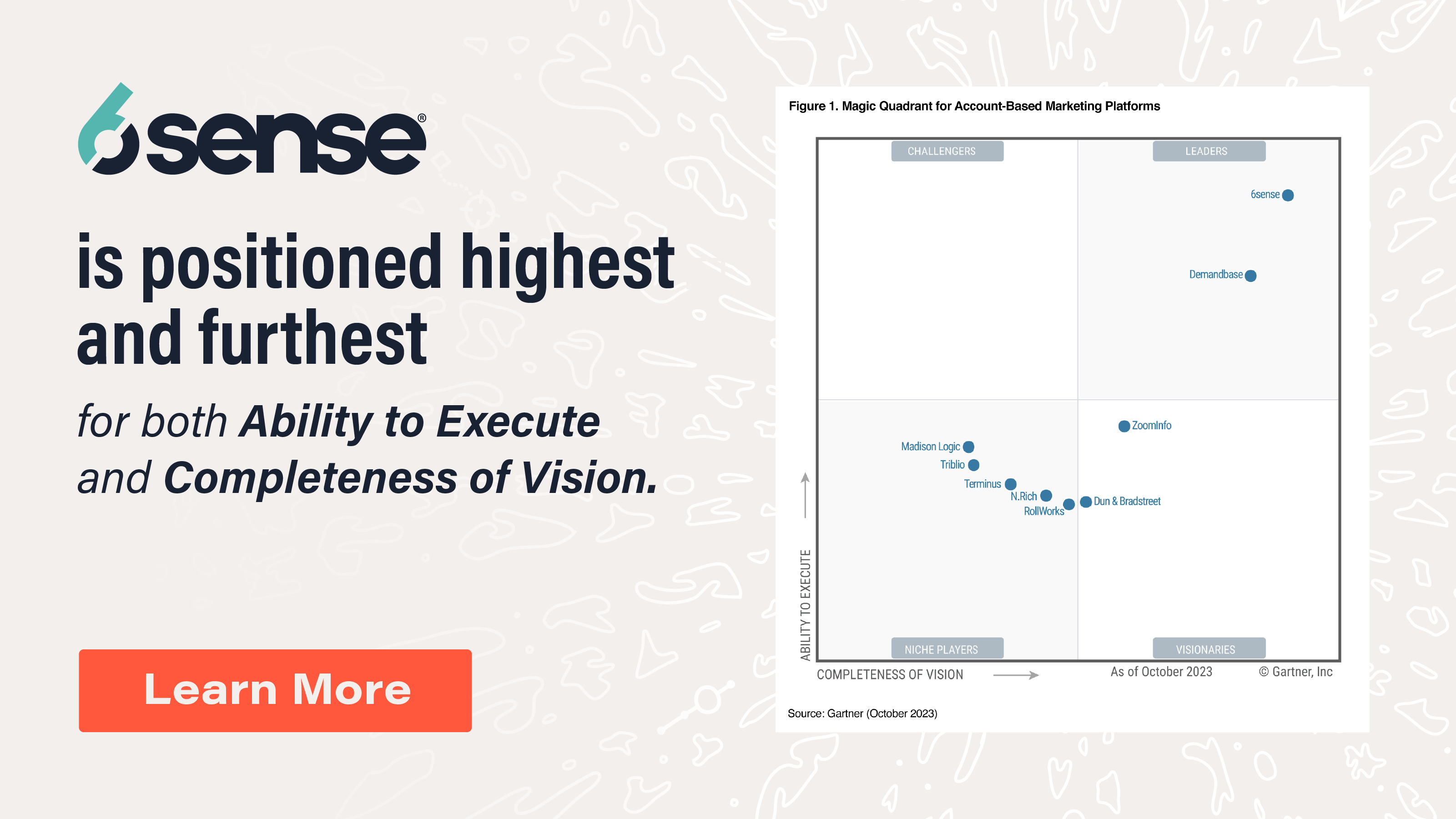Business Development Representatives (BDRs) and Sales Development Representatives (SDRs) are scrappy, hard-working folk, and play a pivotal role within the pipeline puzzle. For starters, they bridge the gap between marketing and sales, and often fulfill the role of company ambassador, providing “first contact” engagement with B2B buyers.
To us, that’s a BFD.
We recently surveyed over 400 non-revenue-quota bearing BDRs across 200 companies to quantify just how much of a big deal BDRs can be. Our goal: to determine how these professionals perceive their jobs and careers.
We were especially keen to see if BDRs feel supported in their jobs today. We also investigated how that perceived support might impact their job performance.
Before we share the results, let’s take a look at how we measured the BDRs’ responses.
How We Quantified BDR Responses
Perceived support was primarily measured by the following four statements in which BDRs rated their agreement on a scale of 1 (strongly disagree) to 5 (strongly agree):
- I know what is expected of me in my role.
- I have the tools, training and equipment to do what is expected of me in my current role.
- Leadership of my company believes my role is highly valuable.
- I believe my experience in this role will help me advance my career.
When asked together, the above statements provide a highly reliable indicator of how well supported employees feel, and how deeply engaged they are in their jobs. (This set of questions is often used within academic and professional research, originating from the acclaimed Gallup Employee Engagement Survey.)
In lay terms, each statement can roughly be equated to the following:
| Survey Question | Translation |
| I know what is expected of me in my role. | I know what to do. |
| I have the tools, training and equipment to do what is expected of me in my current role. | I believe I can do it. |
| Leadership of my company believes my role is highly valuable. | What I do matters to others/is important. |
| I believe my experience in this role will help me advance my career. | What I do matters to me. |
In addition to analyzing the responses to each of these four statements, respondents’ answers were combined to form a comprehensive support score, which we’ll refer to as “Overall Support.”
It’s a Good Time to Be a BDR
The scores reported by BDRs were outstanding across the board. Eighty-two percent of BDRs sampled scored a 4 or higher out of a maximum score of 5 on the Overall Support Index.
To further put these results into context, our researchers have extensive experience studying the BDR role and emphasize that these scores are the highest seen to date.
| Survey Question | Average Score |
| I know what is expected of me in my role. | 4.50 |
| I have the tools, training and equipment to do what is expected of me in my current role. | 4.35 |
| Leadership of my company believes my role is highly valuable. | 4.39 |
| I believe my experience in this role will help me advance my career. | 4.52 |
| Overall Support | 4.42 |
Note: Results reflect responses from 410 BDRs. The highest possible response score was 5.
Source: 6sense
Download this chart here.
Organizational Support Positively Impacts Performance
As evidenced by those scores, there’s no doubt BDRs feel very supported in their jobs today.
As previously mentioned, another objective of our research was to understand the potential impact that feelings of support might have on other job-related outcomes. These scores of support were investigated in relation to other themes captured in the survey, such as:
- Job performance
- Training, and
- How BDRs spend their time on the job
Our analysis revealed that perceived support has an impressive impact on the way BDRs perform and how they allocate their time on the job.
Specifically, BDRs who feel supported by leadership were found to spend 12% more of their time actively contacting prospects and report 22% higher quota attainment than BDRs who don’t feel supported. This is consistent with past research by this team; when BDRs report that they feel supported in their roles, they are more engaged and perform better.
(These findings were found to be statistically reliable, which means that there is a 95% chance of capturing similar results if the same survey were distributed to another sample of similar BDRs.)
An Interesting Relationship Between Training and Quota Attainment
We also examined the relationship between training hours and quota attainment. Did BDRs with more training generate better performance?
Not according to our research. More hours spent in training did not lead to a better quota attainment.
However, we correlated the amount of training a BDR received with their perceived support of their employers. Recall that supported BDRs earn more quota than unsupported BDRs by 22%. This indicates that while training on its own does not directly impact quota attainment, training is a way that BDRs feel supported — and perceived support informs and improves performance.
Next Steps for Revenue Leaders
How can revenue leaders ensure their BDRs receive the support they need?
Don’t Neglect Your Experienced BDRs
Include your most tenured reps on your next check-in list. BDRs who’ve been on the job for a year or more were found to feel 9% less supported than those newer to their companies. It is always tempting to invest more energy in reps who are newer or are not performing up to par, but to do so is to risk undermining the performance of your top performers.
Don’t let any team member feel left behind, even when you want to focus your attention on newer reps.
Increase Perceived Support with Useful Technology
If your organization doesn’t use one already, consider onboarding a sales engagement platform. This is a longer-term play to support your BDRs.
Our survey revealed that when BDRs are provided a sales engagement platform, their feelings of support increase by 6%, leading to an 11% increase in quota attainment. (This article provides more information about this relationship.)
Conclusion
Let’s recap. Here’s what we learned about BDRs in 2022:
- It’s a great time to be a BDR. Overall, BDRs are feeling very supported in their jobs today.
- Support matters. It leads to better job performance and better on-the-job time budgeting.
- Training is a way reps feel supported, which leads to better performance outcomes.
- BDRs with the most tenure need support too. Don’t leave them behind.
- Consider leveraging a sales engagement platform to provide further support for your BDRs.
|
See something you disagree with? Want to plus-1 our findings? We would love for you to add your voice to the mix. We’ll even give you a free lunch. This survey takes less than 10 minutes to complete. Tell us what you think! |







